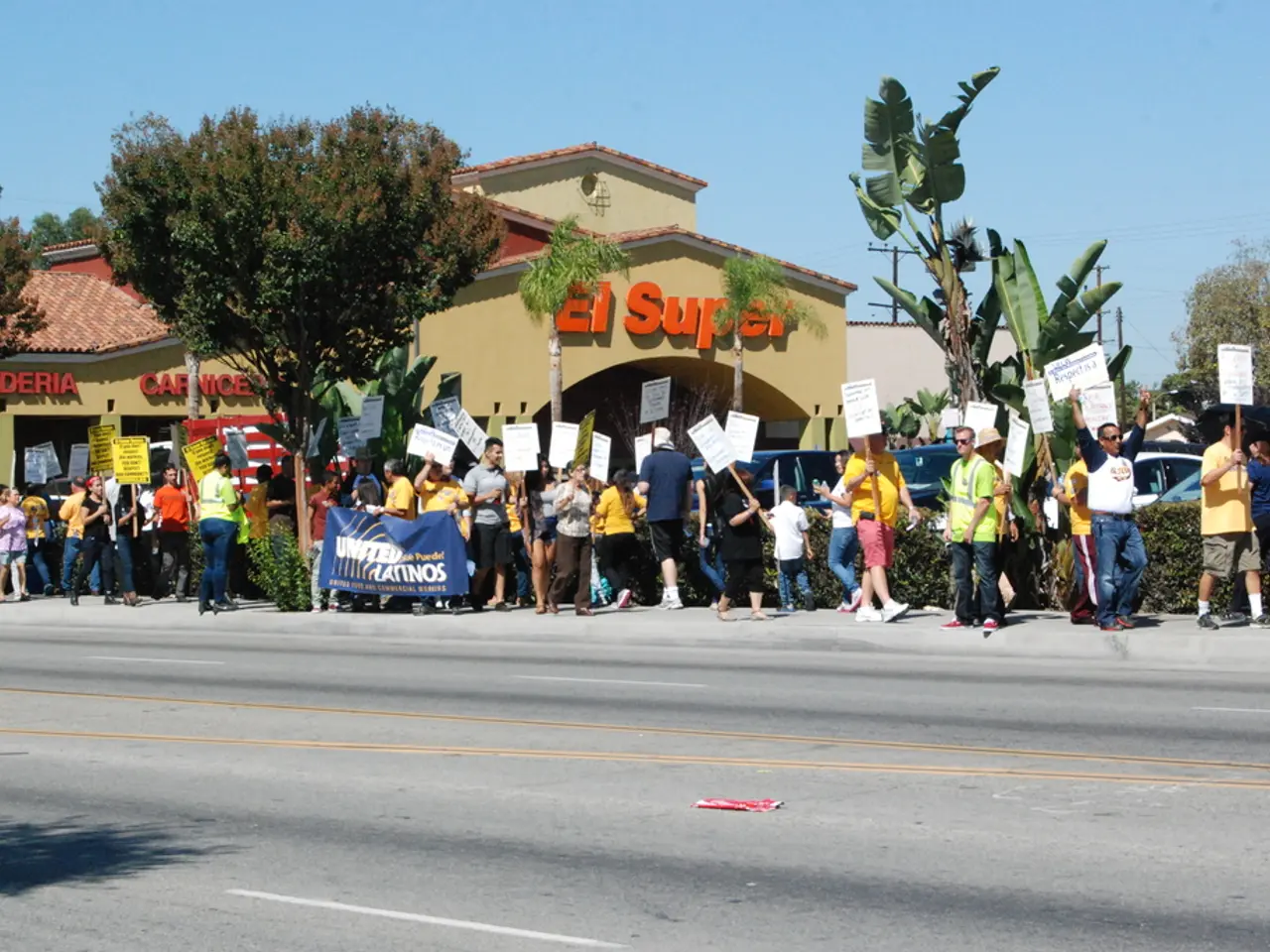A Bipartisan Era Rises Across America
In a significant shift, the Laken Riley Act, an immigration bill, has passed with a broad majority in both the House and Senate. This landmark legislation, named after a young immigrant activist, marks a change in government due to the influence of younger voters.
The passing of the Laken Riley Act, despite decades of inaction on immigration policy, demonstrates that something is being done to address the issues facing the American people. The bill was passed with a majority of Democrats joining Republicans, indicating a bipartisan effort to enact change.
The government has been run by the silent generation for the past 50 years. However, the retirement of older politicians, aged 80 or older, marks a change in the government due to their half-century hold on power. This change could pave the way for new perspectives and policies that reflect the views of the current generation.
The Laken Riley Act is not the only example of Gen Z's impact on politics. Generation Z's political impact is notable for causing shifts in party alignment and policy perspectives. While historically more progressive and Democratic-leaning, Gen Z's 2024 voting patterns revealed a complex realignment. Younger women mainly sustained progressive voting trends, emphasizing issues like reproductive rights and climate change. However, Gen Z men notably shifted rightward, with increased conservative support, influenced by cultural factors including fitness influencers promoting conservative values and skepticism toward liberal outreach.
This ideological realignment suggests Gen Z is not uniformly pushing Congress toward strictly more moderate policies but instead is adding complexity to party and policy dynamics. Some data indicate Gen Z is disillusioned with traditional democratic processes, with a significant portion expressing openness to strong leadership even at the expense of some democratic principles. However, this skepticism is more symptomatic of feeling unheard rather than outright rejection of democracy, which could motivate a new type of political engagement or calls for reform.
Examples of Gen Z influence in Congress are minimal but symbolic—Maxwell Frost, born in 1997, is the first Gen Z member elected to Congress, advocating progressive policies reflecting Gen Z concerns such as economic security and climate. This emergence may signal a gradual infusion of Gen Z issues into formal policymaking.
The extent of moderation depends on ongoing political engagement and whether elected Gen Z representatives grow in influence. While gridlock, compromise, and political disagreements are not inherently bad, as they are part of the system designed to protect the rights of both the majority and the minority, the presence of Gen Z representatives could lead to moderation in some aspects, as they reject extremes on both sides, preferring pragmatic solutions valuing government functionality.
However, Gen Z's political identity could also lead to polarization or cultural realignment, especially along gender lines with Republican gains among young men and Democratic preference among young women. This could result in a renewed focus on economic and social issues such as debt relief, job security, climate, and social justice, pressing Congress to address these concerns or risk losing youth engagement.
In conclusion, Gen Z's impact on political change involves a generational realignment with potential to moderate some policies but also complicate the traditional left-right divide, influencing Congress with diverse and evolving priorities. The extent of moderation depends on ongoing political engagement and whether elected Gen Z representatives grow in influence.
Tucker Scott '26, the Opinions Editor, has written multiple articles in the "Opinions" section, contributing to the discourse surrounding Gen Z's political impact. The specifics of the bill in California, named but not detailed in the text, reveal the goals of the politicians, indicating a focus on addressing the issues facing the American people. The cabinet picks of Trump, including Tulsi Gabbard, Marco Rubio, Doug Bergum, and Matt Gaetz, have been mentioned, with expectations of them doing a fantastic job leading their individual departments.
- The Laken Riley Act, a notable piece of legislation, showcases Gen Z's impact on policy-and-legislation, illustrating a shift in government due to the influence of younger voters.
- Despite prolonged inaction on immigration policy, the passage of the Laken Riley Act signifies that decisions are being made to address the concerns of the American population.
- The bill's passage, achieved with a bipartisan majority of Democrats joining Republicans, exemplifies a collaborative effort among political leaders to effect change.
- The departure of older politicians, aged 80 or older, creates an opportunity for new perspectives and policies that more accurately represent the current generation's viewpoints.
- Gen Z's influence extends beyond the Laken Riley Act, causing shifts in party alignment and policy perspectives in politics.
- The 2024 voting patterns of Gen Z revealed a complex realignment, with younger women maintaining progressive voting trends and Gen Z men shifting toward increased conservative support.
- Tucker Scott '26, as the Opinions Editor, has penned multiple articles discussing Gen Z's political impact in the "Opinions" section.
- The specific goals of the politicians behind the California bill, while not fully detailed in the text, aim to address the issues confronting the American people; meanwhile, the cabinet picks of Trump, including figures like Tulsi Gabbard, Marco Rubio, Doug Bergum, and Matt Gaetz, are expected to show leadership in their respective departments.








